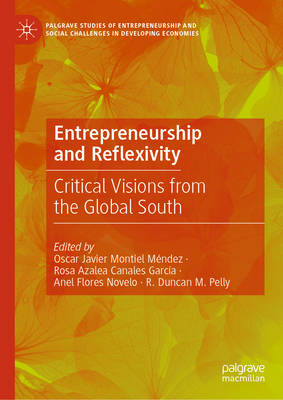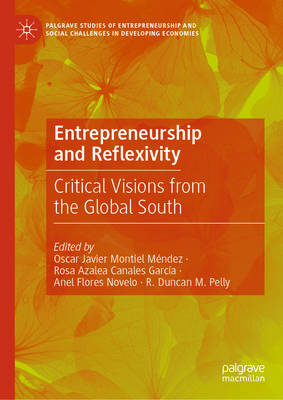
Bedankt voor het vertrouwen het afgelopen jaar! Om jou te bedanken bieden we GRATIS verzending (in België) aan op alles gedurende de hele maand januari.
- Afhalen na 1 uur in een winkel met voorraad
- In januari gratis thuislevering in België
- Ruim aanbod met 7 miljoen producten
Bedankt voor het vertrouwen het afgelopen jaar! Om jou te bedanken bieden we GRATIS verzending (in België) aan op alles gedurende de hele maand januari.
- Afhalen na 1 uur in een winkel met voorraad
- In januari gratis thuislevering in België
- Ruim aanbod met 7 miljoen producten
Entrepreneurship and Reflexivity
Critical Visions from the Global South
Hardcover | Engels | Palgrave Studies of Entrepreneurship and Social Challenges in Developing Economies
€ 160,45
+ 320 punten
Omschrijving
This book focuses on reflexivity as applied to entrepreneurship in the countries of the Global South. Specifically, reflexivity represents a sociological notion designed to explain the structures of human beliefs; however, its usefulness in business and entrepreneurial frameworks is the gap that must be filled. The text considers the fact that entrepreneurs in the Global South benefit from distinctive and diverse institutional peculiarities, in contrast to the nations of the Northern Hemisphere. Strongly influenced by historical, political, cultural, and economic factors, these factors have historical roots manifested in the role of government, the collaboration between companies and universities, the development of cultural heritage, and ethical values. In providing an overview of entrepreneurship that is divergent from the traditional Western approaches, this work offers new, more holistic perspectives that consider subjective, contextual, and social factors to understand the complexity inherent to entrepreneurship to analyze the realities of the Global South, therefore expanding the knowledge and opportunities that lie ahead. It will generate debate among researchers about how reflexivity can be effectively incorporated into the region's entrepreneurial endeavors and public policies to optimize its social and economic contributions.
Specificaties
Betrokkenen
- Uitgeverij:
Inhoud
- Aantal bladzijden:
- 554
- Taal:
- Engels
- Reeks:
Eigenschappen
- Productcode (EAN):
- 9783031999758
- Verschijningsdatum:
- 29/01/2026
- Uitvoering:
- Hardcover
- Formaat:
- Genaaid
- Afmetingen:
- 148 mm x 210 mm

Alleen bij Standaard Boekhandel
+ 320 punten op je klantenkaart van Standaard Boekhandel
Beoordelingen
We publiceren alleen reviews die voldoen aan de voorwaarden voor reviews. Bekijk onze voorwaarden voor reviews.








